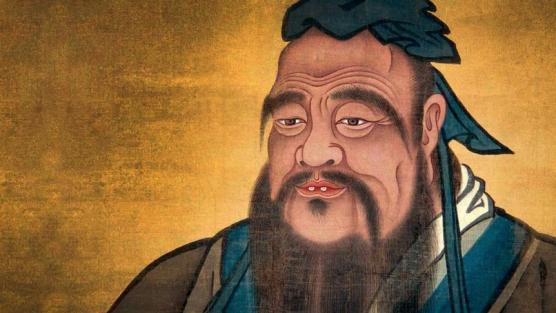
Confucius was born in 551 BCE during the Spring and Autumn Period (770 - 476 BCE). During this period, many rulers and warlords were fighting across the country. Because of all the fighting, life was difficult for the poor. They worked hard for their rulers and received little money in return. Confucius’ father was a great warrior during this time. However, his father died when Confucius was only three years old. Because of this, he grew up in poverty, with only his mother to support him.
1.Which word can best describe the Spring and Autumn Period?
A Peaceful.
B Attractive.
C Dangerous.
D Harmonious.
解析:选C。C 推理判断题。根据第一段的“During this period, many rulers and warlords were fighting across the country.”以及“life was difficult for the poor.”在此期间,许多统治者和军阀在全国各地争斗,穷苦的百姓生活艰难,由此可知春秋时期是一段非常危险的时期。故选C。
2.What can we know about Confucius in his youth?
A He led a comfortable life.
B He was too busy to learn.
C He hated the wealthy families.
D He was full of love to the poor.
解析:选D。D 细节理解题。根据第二段的“He didn’t like the way rulers treated their subjects (臣民).”他不喜欢统治者对待臣民的方式,以及“He wanted to find a way to help people who were less fortunate than he was.”他想找到一种方法来帮助那些没有他幸运的人,由此可知,他对穷人充满了爱心。故选D。
3.The passage doesn’t mention the teaching of ___________.
A self-education
B obeying rulers
C respecting tradition
D controlling emotions
解析:选B。B 细节理解题。根据第三段内容可知,本文提到了孔子的“自我教育”“尊重传统”“控制情绪”,并未提及“服从统治者”。故选B。
4.Confucius died in 479 BCE ___________.
A without being known to the public
B with fights having stopped
C without rulers accepting his teachings
D with his country being saved
解析:选C。C 细节理解题。根据倒数第二段的“the rulers never accepted his teachings. Self-discipline and education didn’t sound as good to them as power and wealth.”统治者从未接受他的教义,对他们来说,自律和教育听起来不如权力和财富好;以及最后一段的“When he died, he believed that he had not saved his country.”当他去世时,他以为他没有拯救他的国家。由此可知,孔子去世时,统治者们还没有接受他的教义。故选C。